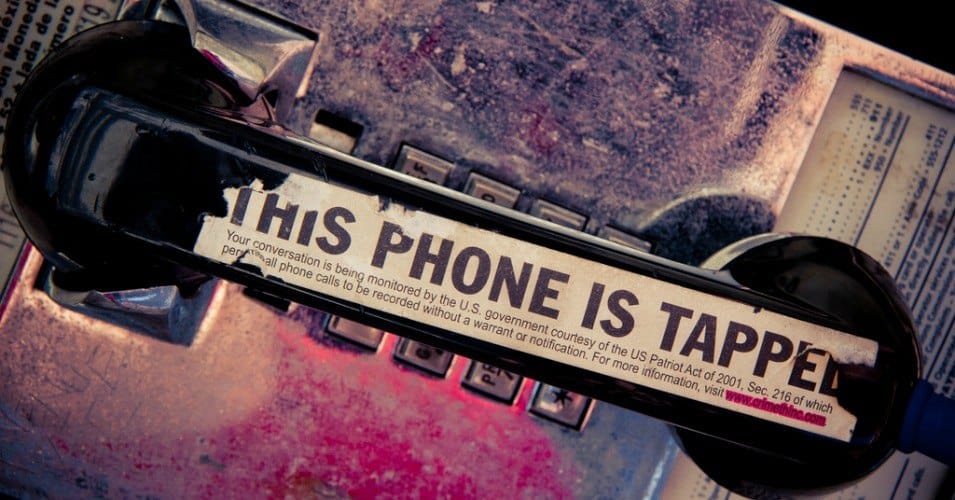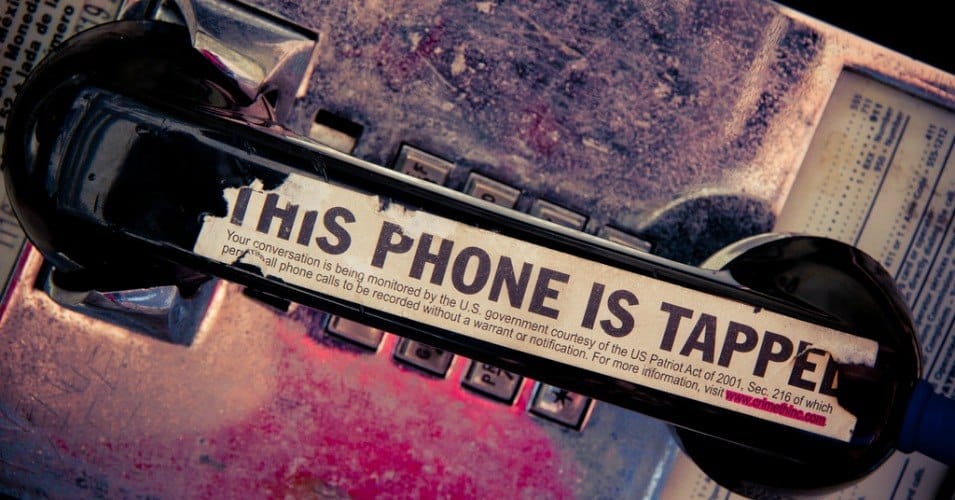The bones of our democracy — the core elements that separate that way of life from others — lie in the First Amendment to the Constitution, specifically the rights to free speech and a free press.
Without the ability to speak freely, and to have things about our government reported equally freely to us, most of the rest of the concept of what was laid out on July 4, 1776 and later falls away. Thomas Jefferson himself stated that an “informed citizenry” was the key to everything.
So it is with more than a little anxiety that we learned secret rules allow the FBI to spy on journalists with such ease that the restraints are really nothing more than a bit of paperwork. As always, the ostensible justifications for another deep step into Post Constitutional America are terrorism, security, protecting the homeland. And, as always, the outcome seems to be much more about stomping out whistleblowers than anything else.
As revealed by an anonymous whistleblower to The Intercept (the government refused to release the information), secret rules allow FBI agents to obtain journalists’ phone records with approval from only two internal officials. No warrant needed. No outside oversight. No courts, no judges, no hearings, no public records.
The rules govern the FBI’s use of national security letters (NSL), which allow the bureau to obtain information about journalists’ calls without going to a judge or informing the news organization being targeted. National security letters are themselves an anti-Constitutional outgrowth of the Patriot Act and its successors. The letters allow the FBI and other law enforcement agencies conducting a national security investigation to demand access to information without a warrant, and, in most cases, prohibit the organization required to supply the information (for example, a library asked what books you read) from even acknowledging the request was made.
The FBI issued nearly 13,000 NSLs in 2015 alone. No one outside of government knows why they were issued, who was affected, and what information was gathered.
The FBI’s secret rules in the specific cases of whistleblowers and leaks only require an additional couple of internal signatures. In addition, the rules specify any extra oversight layers do not apply at all if the journalist is believed to be a spy or is part of a news organization “associated with a foreign intelligence service” or “otherwise acting on behalf of a foreign power.” That will easily rope in any national media service, and most likely is broad enough to pull in quasi-national media outlets like the BBC or Japan’s NHK. And once again, it is the FBI itself defining who is and who isn’t whatever it wants them to be.
In an era when our government conducts more and more of the “people’s business” in secret, the need for brave men and women to step and an provide information, and the need for brave journalists to report that information, is ever more urgent. Without men like Edward Snowden working with journalists, we would never have known the depths of the NSA’s spying, for example. And without the heroic efforts of the person who leaked these once secret FBI rules, we would never have known what new tools the government had granted itself to weaken the press freedoms that otherwise helped sustain this nation for centuries.
Reprinted with permission from WeMeantWell.com.


